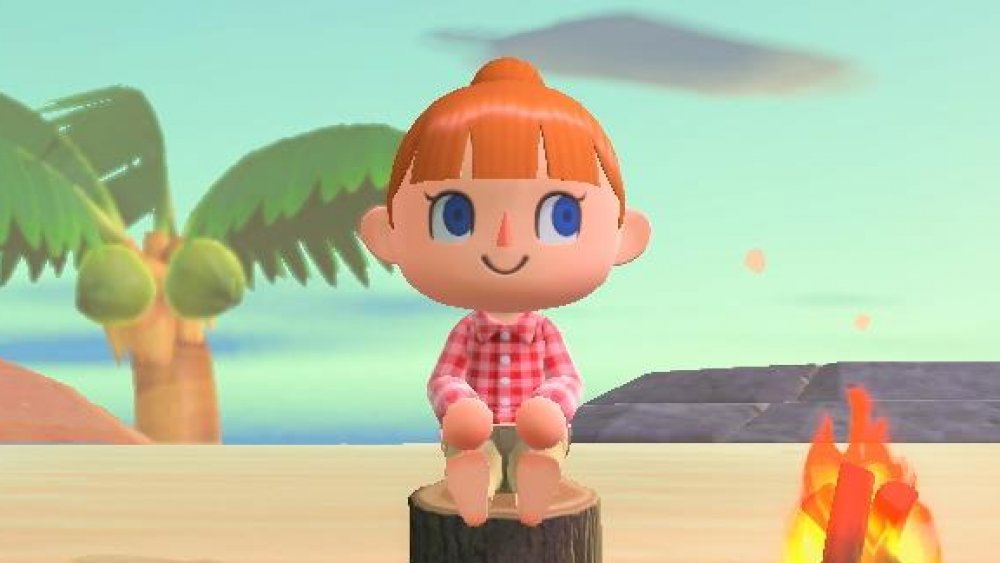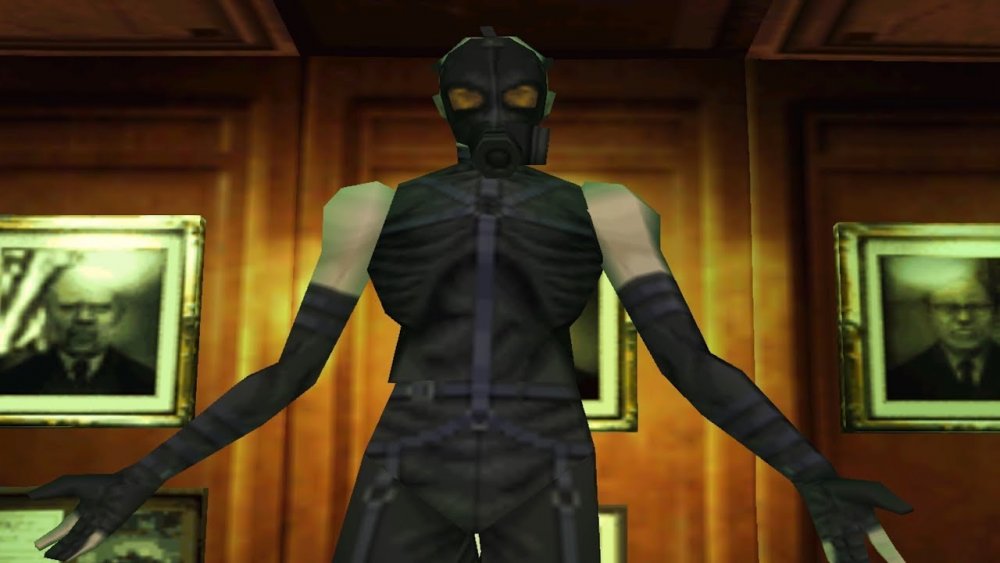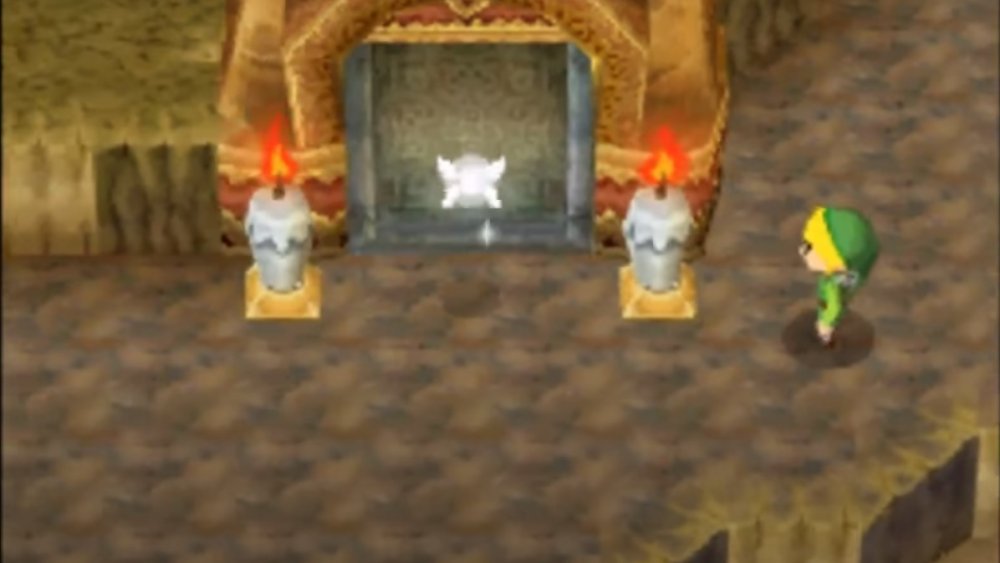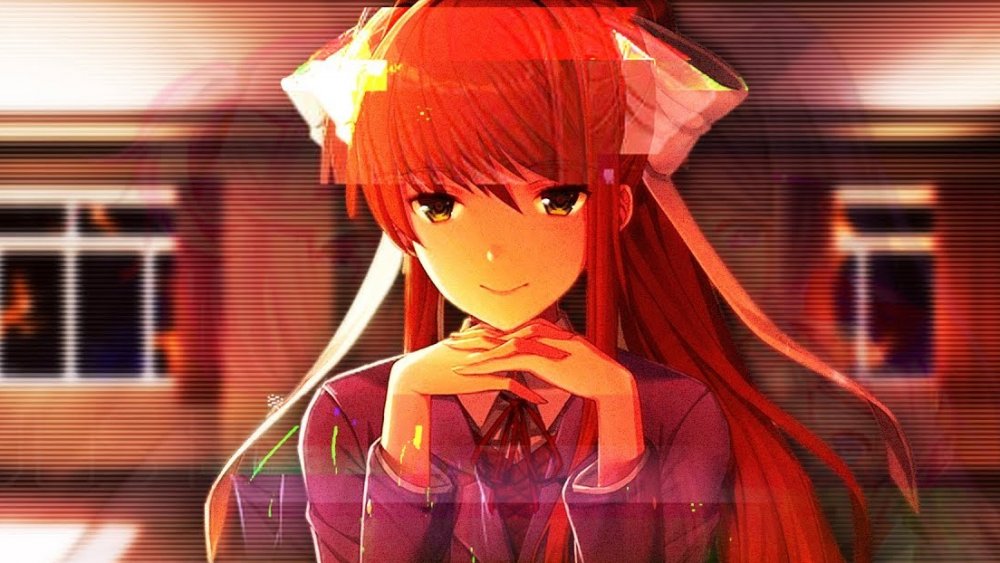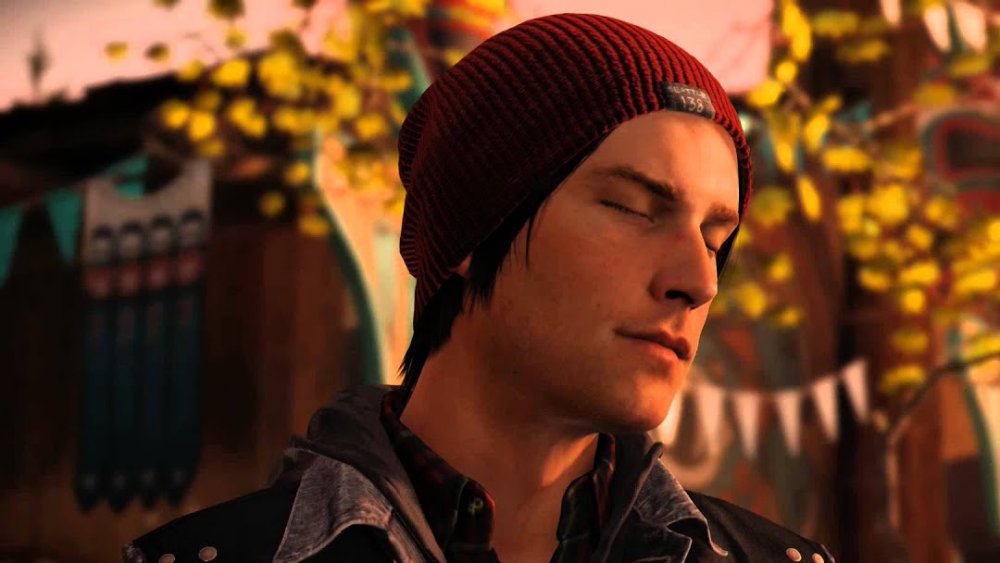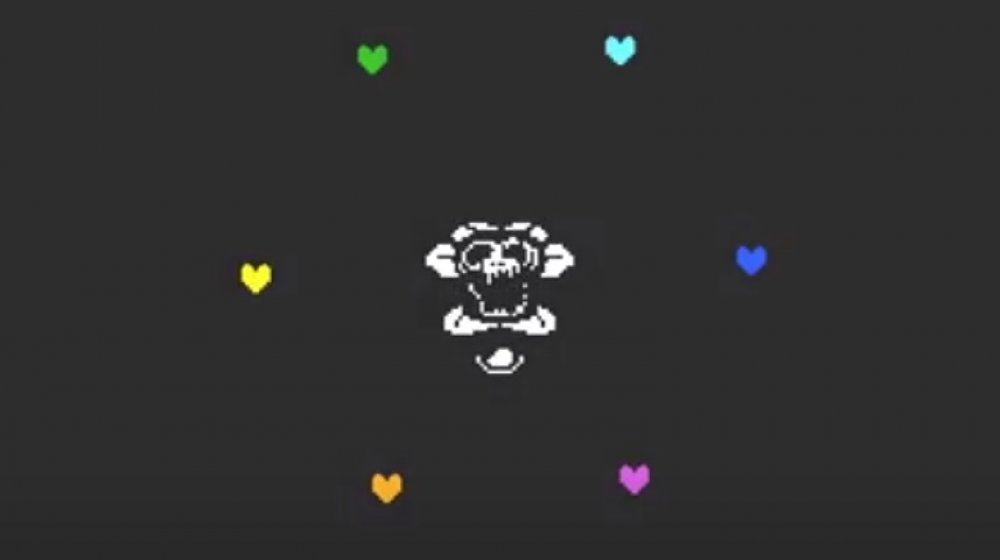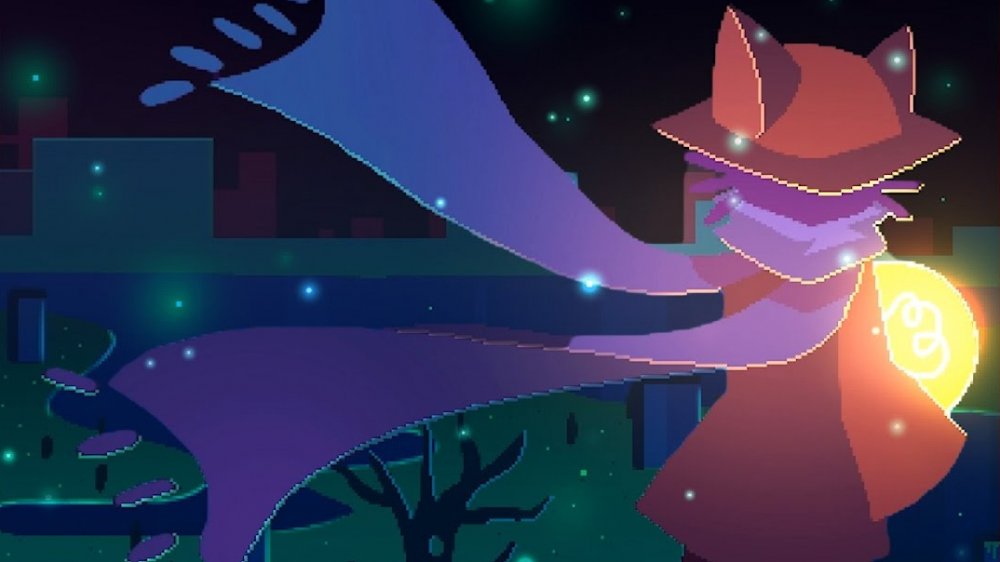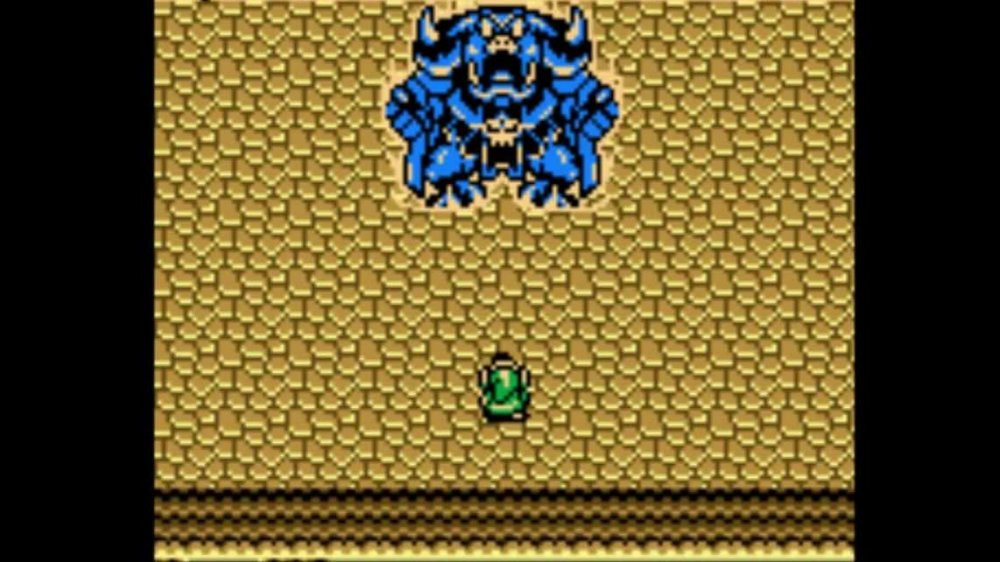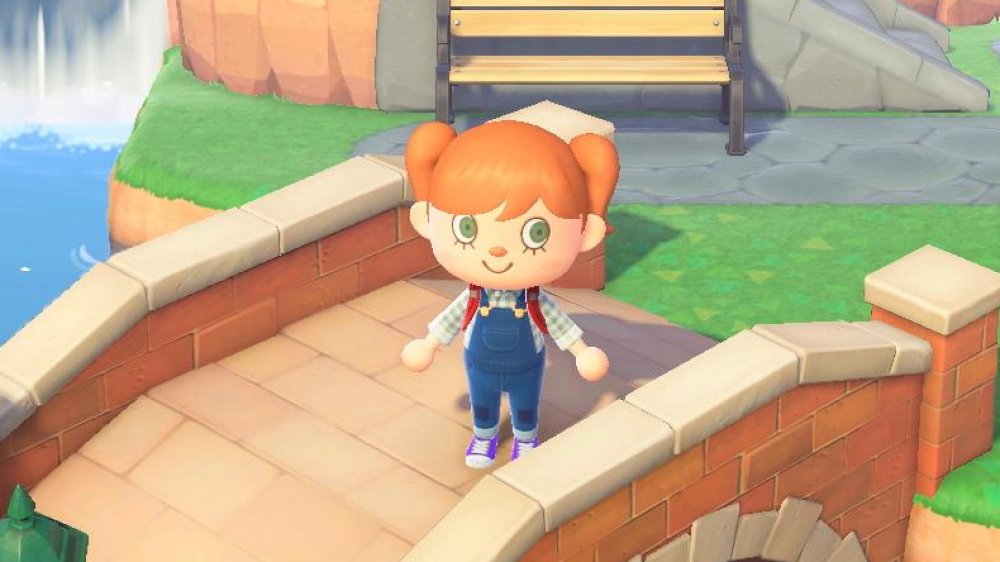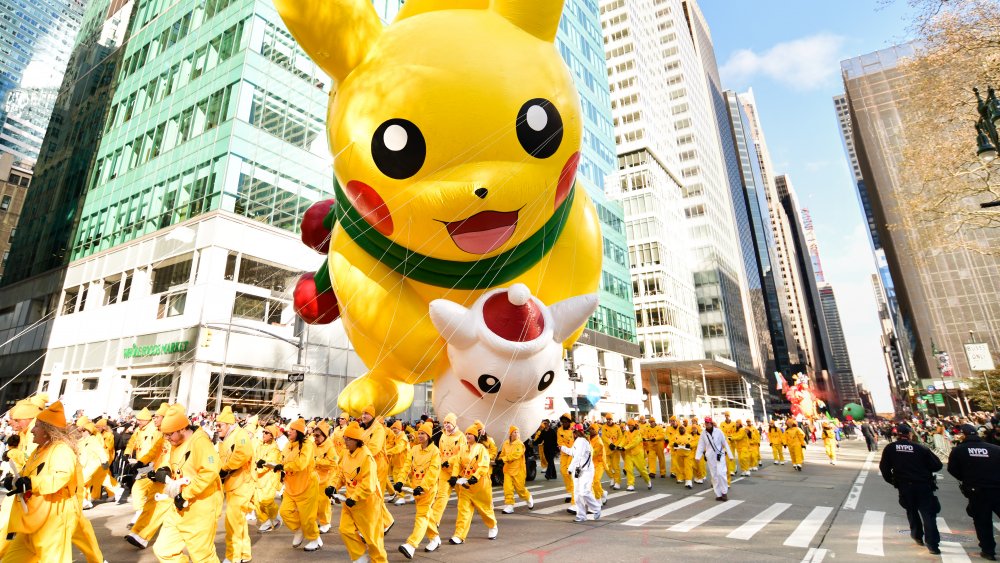Bizarre Real Life Things Games Make You Do
Normally you play games with a controller, or a mouse and keyboard, and that's enough. Once in a while, though, games will try to think outside the box. Several titles have incorporated the real world into puzzles, or asked players to complete tasks in the land of the living. If these requests are explained well, they can serve as a fun little deviation from the norm. If they're not, unfortunately, they can feel like frustrating exercises with little payoff.
When you think of games that break the fourth wall — like Undertale or OneShot – this wall-breaking might come across as a postmodern treatise on the nature of games and how players interact with them. While there's certainly a place for that (and, in fact, both of those games are on this list), sometimes it's just a cute little gimmick that programmers added in — for better or worse.
Whether it was a mundane action like visiting a website, or a weird request to blow into your Nintendo DS, these games made you do something bizarre outside of the game itself in order to progress.
Metal Gear Solid - Change controller ports
In one of the most famous fourth wall breaks in gaming, Metal Gear Solid makes you move your controller to the first port to the second in order to beat Psycho Mantis.
Mantis is a powerful psychic who uses his abilities to read Snake's mind (and your memory card) to get the edge in combat. He knows your every move and will dodge your attacks without fail. Eventually the Colonel calls and tells you to switch your controller to the other port, which for some reason makes it so Mantis can't predict you anymore. You're still in for a tough fight, but at least he's beatable now.
Slightly less well-known is a funny callback to this moment in MGS 4. Screaming Mantis seems to be pulling all of the same shenanigans as her predecessor, which isn't too surprising since she's being possessed by his ghost. Sort of. Long story. Since this game was on the PS3, there were no controller ports to switch. If you were clever, you'd try reassigning your gamepad to something other than 1. Then you'd get a call from Otacon telling you that you're an idiot.
The Legend of Zelda: Phantom Hourglass - Blow out candles
The Legend of Zelda: Phantom Hourglass had a few puzzles that revolved around features of the Nintendo DS. If you were like many players, there's a chance you were stuck for a week because you couldn't figure out that you were supposed to close the DS to transfer a mark onto the map. Were you too proud to look up the solution to that riddle? Don't worry — you weren't alone.
Perhaps the weirdest use of the (then) new DS technology was when Link had to blow out candles in order to open the Temple of Fire. Lighting and extinguishing candles or torches is nothing new in this series, but it's usually done with an item. Not this time. To blow out these candles, you had to actually blow into your DS's mic. It's such a weird little thing, it makes you wonder who came up with this. Was blowing into a mic supposed to be more immersive than pressing a button, or did a developer just think it would be a cute gimmick?
Either way, this mechanic seems to have died out with the Nintendo DS. And thank goodness.
Doki Doki Literature Club - Delete Monika
The dating sim / visual horror novel Doki Doki Literature Club puts you at the mercy of Monika, the world's creepiest high schooler. Monika becomes aware that she's in a video game, and somehow that awareness gives her the ability to edit the game's files. She knows that there's no happy ending for her programmed in, but she's trying to force one to happen anyway.
You can't finish the game while Monika is around. She manipulates files so that you can't do anything besides talk to her, but no talk option gets you past a certain point. Alone in the game and with no ending of her own, you reach a point where the only way to progress is to get rid of Monika. To do this, you end up having to go into Doki Doki Literature Club's game files yourself in order to delete hers. That removes her influence over events and lets you get to the end.
So there's no purely in-game method to win, though it does beat you over the head with the solution if you don't figure it out.
Who Framed Roger Rabbit - Call Jessica Rabbit
NES games are sometimes a bit unclear with their objectives. Remember that this was in the days before mission logs, mini maps, and waypoints. If your mission was more complicated than "run to the right and kill things" it could be hard to figure out exactly what to do, and at least a few games knew it.
1989's Who Framed Roger Rabbit (yeah, it turns out there was a movie and a video game) had one especially obtuse part. Rather than put a clue somewhere in the game, the programmers put a clue to the clue: a phone number you were meant to call in real life. It connected you to a prerecorded message from Jessica Rabbit, who would tell you what to do next.
Of course, that was thirty years ago, and the phone number has long since been reassigned. The last time someone tried the number and wrote about it in 2010, it connected to an adult hotline. Who knows what you'll get if you call it now.
Infamous: Second Son - Visit a real website for a clue
Infamous: Second Son is the story of Delsin Rowe and his fight against the Department of Unified Protection, a government task force with an extremely vague name and the job of hunting down superpowered people. Most of the game is pretty standard action/exploration fare, but there's one part that's particularly... well, infamous.
When it was originally released, the Paper Trail DLC required you to go to a real-world website to get clues about what you're supposed to do and where you need to go. No doubt it was supposed to be immersive, as if you actually were Delsin Rowe finding information and putting it to use. In practice, it was just a gimmick and a bit of a pain.
There is some good news, though. The DLC has been patched so you don't need that website anymore, and the campaign is solvable with no outside resources. In fact, the website itself doesn't even exist anymore. Whether the studio just didn't feel like paying to keep it or acquiesced to player complaints, Sucker Punch made the wise choice to keep Second Son's missions completely in-game.
Undertale - Reopen when Flowey takes over
Undertale is a really meta game. It's as much about how players interact with their games as it is about actually trying to get your character out of the Underground. One major example is Saving and Loading, which in Undertale aren't just things the player does — they're actual abilities the protagonist has.
It should be no surprise, then, that the final-but-not-really boss ends up using similar powers to fight back. After absorbing the power of six human souls, Flowey gets powers of Saving and Loading that override your own. He overwrites the save file with a corrupted one and crashes the game, forcing you to restart it in order to actually fight him.
It gets worse, though. The fight against Flowey is way harder than anything up to that point, and your Saving and Loading powers are gone. Every time Flowey wins he crashes the game again, meaning you need to restart it again. Is it really that big of a deal reopening the game instead of just reloading a save file? Probably not, but man is it annoying.
OneShot - Find files on your computer
OneShot is an exploration/puzzle game where you guide a child named Niko through a mysterious world in order to relight its dead sun (which looks suspiciously like a lightbulb). OneShot is another game that messes with your real-world computer while you play, doing everything from downloading files to changing your desktop background.
That makes OneShot sound more like a computer virus than a game, but the gimmick here is that the solutions to puzzles are often outside of the game itself. It doesn't put files on your computer just to troll you; it's because they have key information that you'll need to progress.
Most notably, there's a file that shows up in your Documents folder after you beat the game. The first time you play through, you can select one of two endings, neither of which are great — Either Niko dies or the world does. However, if you find this new document, it guides you to the so-called Solstice Route and the true ending of OneShot.
The Legend of Zelda: Oracle of Ages / Seasons - Link up
Back in the days of Game Boys and link cables, there were two excellent Legend of Zelda games (actually there were three, but Link's Awakening didn't make this list). Oracle of Ages and Oracle of Seasons were two separate, but closely related titles. Each game could be played alone, but there were secrets and an entire final chapter that could only be reached by linking the two games (pun absolutely intended).
Each of the games has Link arriving in a new world and fighting to free one of two Oracles: either Din or Nayru. At the end of each game, Link is returned to his own world, but two dark figures are seen cackling in the background, saying that the true evil has not yet come. By linking the games, you turn the two separate plots into a single storyline, where the two Oracles work together to send you to the true final chapter.
Unlike, say, Pokémon, where you could at least finish a single game on its own, these locked the endgame away until you were able to link the two together.
Animal Crossing: New Horizons - Wait. A lot.
Saying that Animal Crossing: New Horizons is a hit is an understatement, but this great and charming game isn't without its issues. A lot of what happens in-game in Animal Crossing takes real time. At the beginning, especially, it takes a long time for things to get going. We're talking actual real-world days of waiting for things to get built and villagers to move in.
This leads to a whole lot of players doing a whole lot of waiting. Thumb-twiddling isn't normally a game mechanic, but in its early stages it sure seems like AC:NH is trying to make it one.
There is a way around it, however, that turns this section into a twofer. As in the olden times of Pokemon Gold and Silver, players can spend a lot of time waiting, or they can go into the system settings and mess around with the date and time. Since New Horizons reads your Switch to find out how much time has passed, this is an easy way to trick the game into giving you those goodies early.
Pokemon Games - Attend special events
Gamers are often seen as a shy and reclusive breed. Game Freak apparently wanted to make some small effort to change that. Not only does Pokemon encourage players to trade and battle with each other, but ever since the first generation, there have been special Pokemon that you can only get by going to officially sanctioned events.
From Mew in Pokemon Red and Blue (and no, it's not under the pickup truck by the S.S. Anne — we've all tried), to a whole slew of monsters in Sword and Shield, players have had to step out into the real world if they want to complete their collections.
Think about this. There's actual, in-game content locked behind these special events. It would be like if Super Mario Odyssey had a power moon that you could only get by going to Nintendo World on New Year's Eve, and without it you could never reach 100% completion. For a game that's supposed to be about catching 'em all, that's a pretty bizarre requirement.

